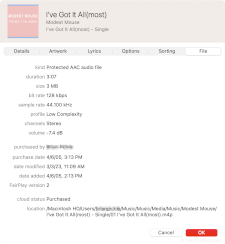DRM
Stands for "Digital Rights Management."
DRM is a collection of systems used to protect copyrights on digital media. DRM tools limit the playback and use of protected media — music, video, and eBooks — to only people and devices with a valid license. These tools may also limit unauthorized copying and distribution of copyrighted digital media. DRM is used to protect both downloaded media files and streaming content.
Most forms of DRM lock media files by encrypting files and providing decryption keys to licensed users. Some types of DRM require an active Internet connection to check for a license, but others only check for a license periodically or authenticate offline. Movies offered for rental instead of purchase may be time-restricted and expire after a certain amount of time. Other media may only be available to stream in a specific country or region, determined by a device's IP address or GPS location.
Digital Rights Management is important to content creators, publishers, and distributors to make sure that they receive the appropriate revenue for the content. Some forms of DRM have been controversial due to buggy implementation or overly restrictive rules placed on the customer. However, when DRM works without being overly burdensome, it can reduce piracy by lowering the demand for piracy. For example, the iTunes Music Store used a form of DRM when it launched that allowed people to easily buy music and listen to it on all their devices in a way that was easier than using P2P software to download it illegally.
NOTE: Commercial software can also use DRM to ensure that only licensed users can run it, typically by requiring an activation key or linking it to an online user account.
 Test Your Knowledge
Test Your Knowledge